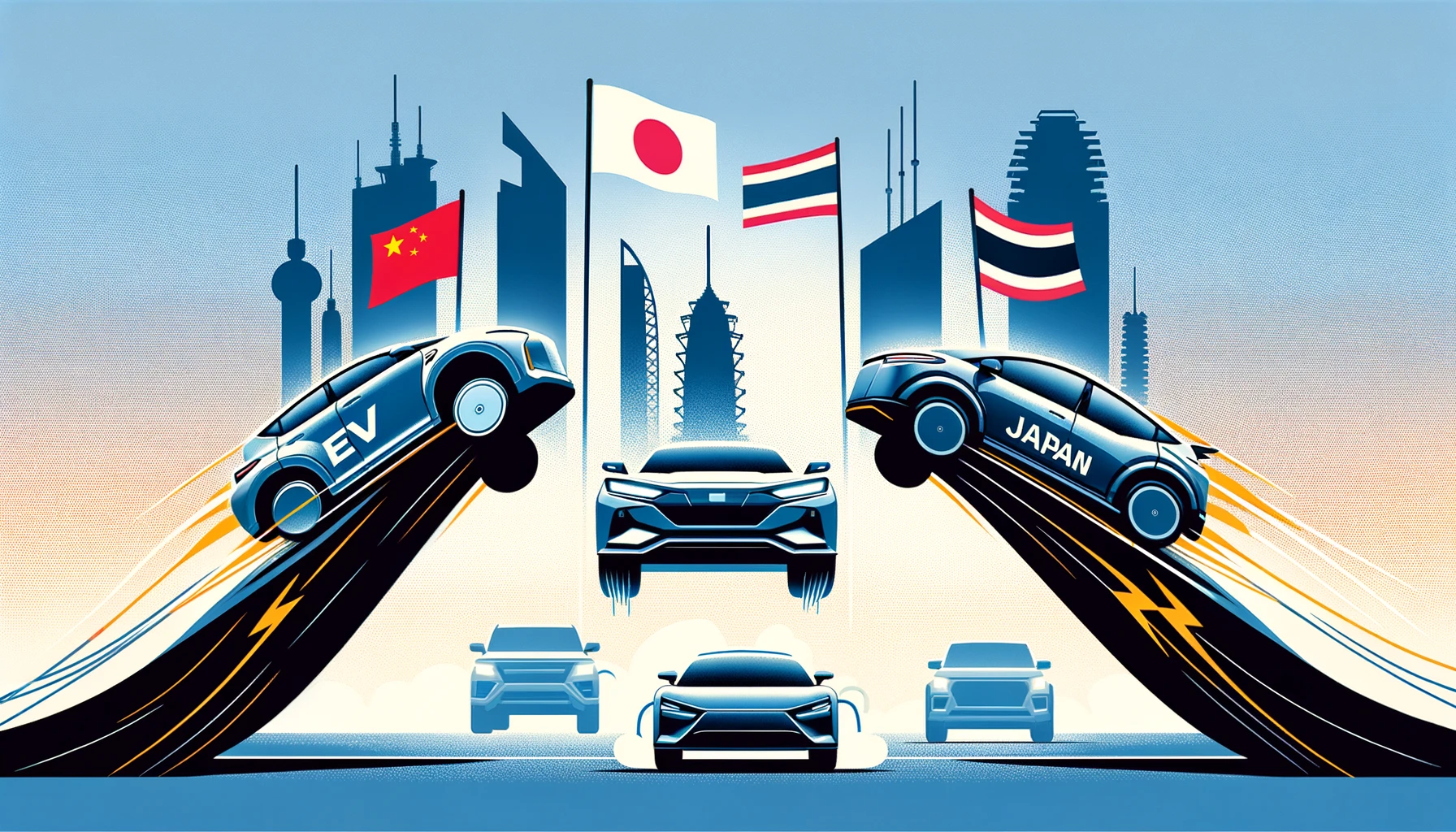
At the heart of the bustling Bangkok International Motor Show last month, an ambitious promise echoed through the venue: Hozon New Energy Automobile Co., operating under the brand Neta Auto, pledged to double its electric vehicle (EV) sales in Thailand to 30,000 units in the current year. This announcement not only signifies the aggressive expansion plans of the Chinese automaker but also highlights the rapidly changing dynamics of the global automotive market, particularly in Southeast Asia.
Until recently, Neta Auto was a relatively unknown name in the Thai market. However, with a global sales figure of 105,563 units in the last year, as reported by Bloomberg NEF, the company is rapidly making its mark. This figure, although impressive, pales in comparison to the more than three million units sold by BYD Co., another Chinese manufacturer and the current market leader in EV sales. The success of Chinese carmakers like Hozon and BYD underscores a pivotal shift in the automotive industry, with China’s manufacturers not only offering more affordable EV options but often being the only options in emerging markets.
The advent of Chinese EV manufacturers poses a significant challenge to legacy automakers such as Toyota Motor Corp and Nissan Motor Co. Unlike their Chinese counterparts, these established brands lack a comprehensive lineup of electric vehicles, especially across the diverse price range that Chinese companies offer. For instance, BYD’s cheapest EV hatchback starts at approximately US$10,000 (RM47,505), making EVs accessible to a broader audience. This competitive pricing strategy and a wider range of EV models have enabled Chinese automakers to capture a growing share of the market in Thailand, a country traditionally dominated by Japanese car manufacturers.
The shift in consumer preferences is evident in the market share data. For years, Japanese automakers maintained a stronghold over the Thai market, with a share consistently above 80%. However, this dominance has waned, with their market share dipping below this threshold in the past year. The surge in demand for EVs, driven by companies like Hozon, is a clear signal that the automotive market in Thailand is ripe for a transformation.
The commitment to ramping up production was articulated by Hozon’s Vice President Wang Chengjie, who expressed confidence in doubling the output of the company’s new Thai factory. This facility, currently capable of producing 20,000 Neta cars annually, is a testament to the company’s bullish outlook on the EV market in Thailand.
EV sales in Thailand have witnessed a remarkable increase, soaring to about 76,000 units last year from less than 10,000, as highlighted by Tatsuo Yoshida, a senior auto analyst at Bloomberg Intelligence. This growth has propelled Chinese brands to command a 10% share of the entire Thai automotive market, signaling a notable decline in the dominance of Japanese legacy carmakers.
The evolving automotive landscape in Thailand is indicative of broader trends across the Southeast Asian region. With new vehicle sales and registrations in ASEAN nations climbing by 18% to 3.27 million units in 2022, the region is emerging as a pivotal market for global automakers. Thailand, often dubbed the “Detroit of Asia,” plays a crucial role as the largest auto manufacturing hub in Southeast Asia. The presence of Chinese EV makers like BYD and Great Wall Motor Co. in Thailand, leveraging the local labor and manufacturing ecosystem, signifies the strategic importance of the region in the global EV market.
EV Market Share in Thailand
| Year | Total Vehicle Sales | EV Sales | Chinese Brands’ Market Share |
|---|---|---|---|
| 2021 | 800,000 | <10,000 | N/A |
| 2022 | 800,000 | 76,000 | 10% |
Key Highlights:
- Competitive Edge: Chinese automakers are outpacing traditional car manufacturers with affordable and diverse EV offerings.
- Market Shift: Japanese automakers are witnessing a decline in their market dominance in Thailand, a trend that may replicate across Southeast Asia.
- Strategic Expansion: Chinese brands are aggressively expanding their footprint, with Neta Auto aiming to double its sales in Thailand.
- Policy Incentives: Southeast Asian countries, including Thailand, are implementing favorable policies and incentives to boost EV adoption, further propelling the growth of Chinese EVs in the region.
As the automotive industry continues to evolve, with a significant push towards electrification, the landscape in Thailand and the broader Southeast Asian region presents both opportunities and challenges. Chinese automakers are well-positioned to capitalize on this shift, thanks to their early focus on EV technology and competitive pricing. However, legacy automakers are not standing still, with companies like Toyota and Isuzu exploring EV options, including pickups, a crucial segment in the Thai market.
The drive towards electrification is supported by government initiatives, such as subsidies and tax breaks for EV purchases. These policies, along with a growing consumer preference for environmentally friendly vehicles, are expected to further accelerate the adoption of EVs in Southeast Asia.
As the region continues to embrace electric vehicles, the battle for market dominance will intensify, with Chinese brands leading the charge. The automotive industry’s future in Thailand and Southeast Asia is electric, and the strategies adopted by both new entrants and established players will determine the pace and success of this transformative journey.
Related News:
Featured Image courtesy of DALL-E by ChatGPT
